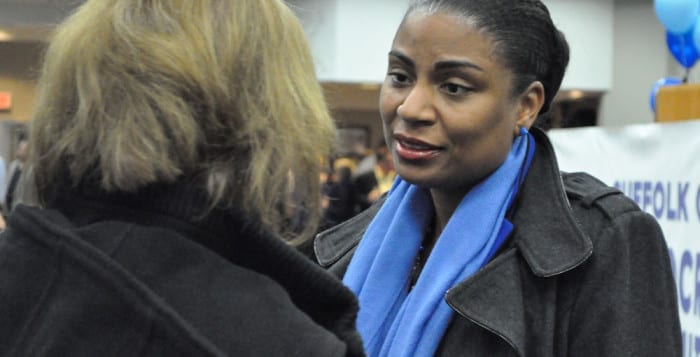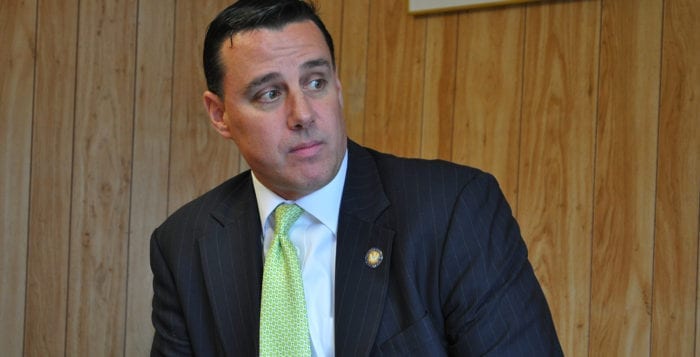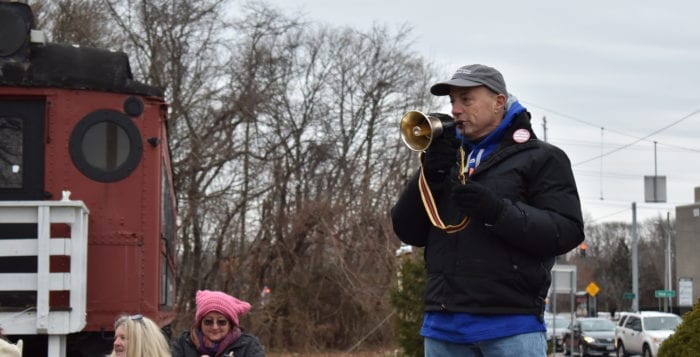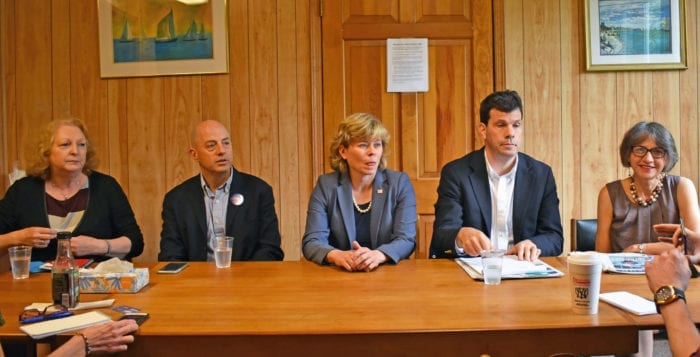By Nancy Marr
What can we say about our recent election? In Suffolk the loss of their seats by many local Democratic legislators was a surprise. Although a majority of voters in Suffolk County tend to vote Republican, Democratic legislators had been doing well for many years with little opposition. Was it because voters were critical of the dissension among the Democrats in Washington, as many analysts said?
Editor and columnist Ezra Klein quoted data scientist David Shor, who said that the Democrats lost many lower income voters, particularly Hispanics, because of their emphasis on issues like defunding the police. Shor also said they should have talked up the issues that were the most popular and kept quiet about the others. Or did the struggle between the parties cause a lot of “no” votes on principal?
But, coming back to Suffolk County, why were three of the five NYS ballot propositions defeated so profoundly? Many voters reported robocalls urging them to vote “no” for propositions one, three, and four. Proposition #1 would have removed a requirement included in the amendment of 2014 (that first created New York State’s independent redistricting commission), which said that there must be at least one vote from the minority on the maps that are submitted. (The League of Women Voters opposed Proposition #1, believing that it was important to give both parties a chance to have meaningful participation in redistricting).
Propositions #3 and #4 would have made voting much easier. #3 would have it possible for a citizen to register closer to the day of the election, instead of having to register ten days before the election, as specified in the NYS Constitution. And proposition #4 would have removed the restrictive requirements to get an absentee ballot, allowing voters to vote at home if they wished, or if their work schedule interfered with the election schedule.
Were Suffolk voters agreeing with voters in many other states who didn’t seem to want to make voting easier? Were the election results just an example of the flow of history? Perhaps the election was the natural response of Republican party leaders who found ways to convince voters to fight to gain control, while the Democratic leaders did not effectively work to get out the vote. There were issues that voters were concerned about: educational issues around teaching black history; privacy issues around mandated vaccinations; and the dilemma of schools being closed for much of the year, that Republican and Conservative campaigners emphasized to build support.
Many voters may not know how, or do not make the effort, to evaluate the candidates who are actually running and instead rely on information on flyers and social media. The League of Women Voters, which is nonpartisan and never supports or opposes any candidate or party, sponsors candidate debates, on zoom and in person when possible, where candidates introduce themselves and answer questions.
The League provides information from all the candidates in an online database, VOTE411.org, which provides information to each voter about their registration status, where they will vote, and their entire ballot, including all offices and any propositions. Newsday and most of the local newspapers also print information about all the candidates and their experience and opinions, explaining why they are endorsing them, if they do.
Voters who are informed are better able to select candidates who will represent their interests. Voters will now also have a chance to ensure that the election districts for New York State Assembly and Senate and the United States Congress are fair, representing their community and its population.
Prior to the 2020 Census, the changes in district lines were drawn by a legislative committee, representing the political parties. In 2014, a Constitutional Amendment was passed creating an independent redistricting commission (NY IRC) for New York State. It is charged with revising the district lines to accord with the findings of the United State Census in a manner that is fair and nonpolitical.
On November 23, the IRC will hold a hearing for Suffolk County at Stony Brook University’s Wang Center. To learn more about the new district lines and how to attend or testify at the hearing, go to https://nyirc.gov/ and review the current maps and the revisions. The testimonies at the hearing will influence the New York State Legislature, which will either accept the maps or send them back for revisions. If after two revisions no plan is approved by the IRC, the redistricting will go back to the Legislature to be drawn.
The IRC hearings offer every citizen the opportunity to give input about how they will be governed, just as casting a vote in an election will help select a candidate who represents you.
Nancy Marr is vice-president of the League of Women Voters of Suffolk County, a nonprofit nonpartisan organization that encourages the informed and active participation of citizens in government and influences public policy through education and advocacy. Visit www.lwv-suffolkcounty.org or call 631-862-6860.

















